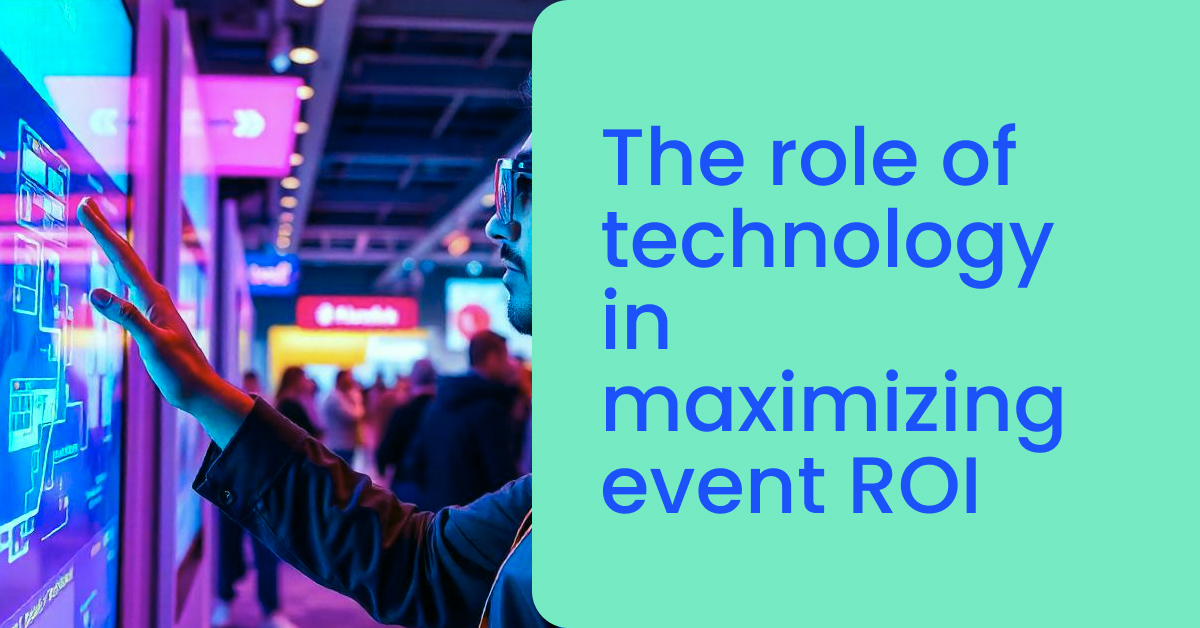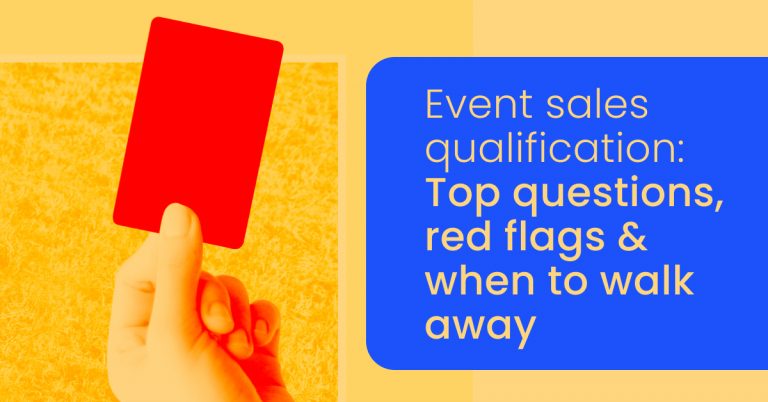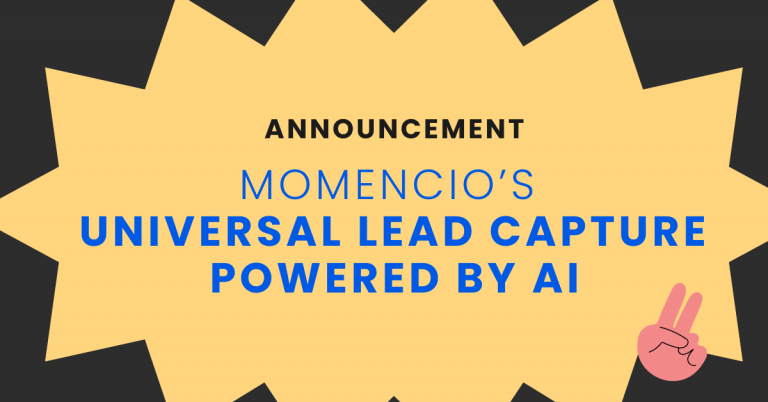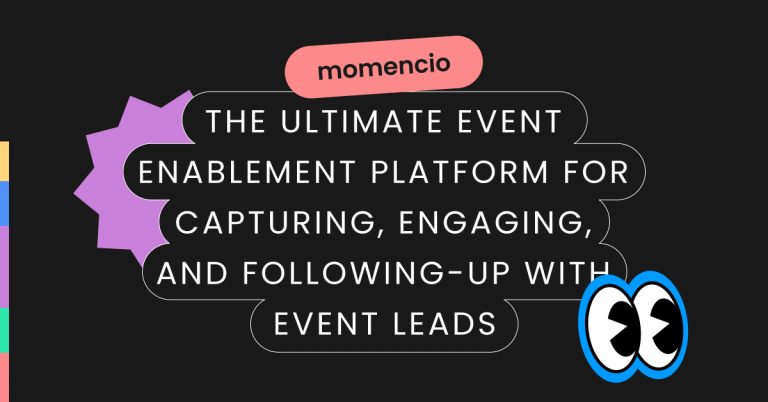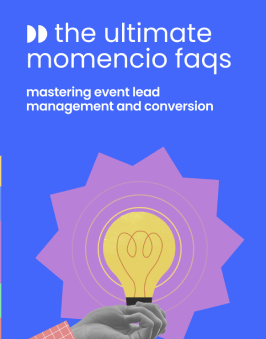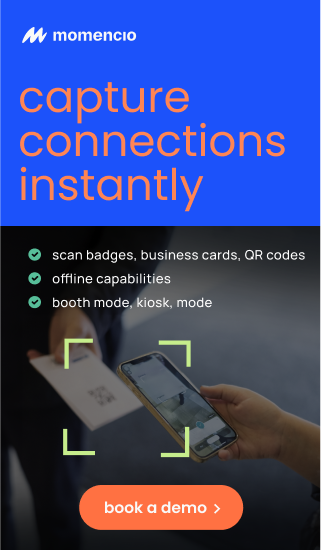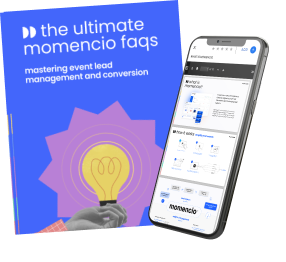The future of technology is endless, and it’s difficult to stay ahead of the curve. Technology will always be with us regardless of how much we try to avoid it. We must learn to adapt to and accept new technology since it provides several advantages that we must capitalize on. Technology innovations will continue to assist in simplifying procedures, increasing productivity, and increasing outcomes. In this blog article, we’ll highlight various ways you can use technology for maximizing event ROI (Return on Investment).
TL;DR
Technology plays a crucial role in maximizing event ROI by enhancing lead capture, real-time engagement, and post-event follow-ups. Discover how tools like CRM integration, mobile apps, and analytics platforms can streamline event processes and boost conversions.
Maximizing event ROI
The influence of technology on events
There are various ways that technology impacts the event industry and helps in maximizing event ROI. For starters, it can assist in engaging your guests and providing a tailored experience that makes them feel unique. Using technology to provide personalized messaging, bespoke material, and one-of-a-kind experiences can enhance the stickiness of your event and promote long-term engagement.
Second, interactive technology can improve the efficiency of your event by improving operational capabilities. This can involve automating workflow operations like check-in or booking and delivering real-time statistics on attendee behavior.
The impact of technology on event ROI
Before planning, you must identify your event objectives and verify that any technology employed supports and accomplishes them. If you do not know your aims, it will be difficult to pick which technology to adopt and when to employ, which can put a dent in your plans of maximizing event ROI.
For example, if lead generation is one of your objectives, you’ll need systems that combine lead capture technologies. Alternatively, if you want to maximize income from your event, marketing automation technologies that aid in driving sales conversions will be essential. Whatever your objectives are, technology will play a critical part.
Provides analytics & data
Before the advent of event apps and platforms, event planners depended on pre- and post-event surveys to determine event ROI. Since open rates seldom reached statistically significant percentages, such statistics rarely provided a fair representation of an event’s success.
The rules of the game have subsequently changed. One of the most significant advantages of event technology for maximizing Event ROI is data insights and analytics reports. Planners must locate the proper piece of technology that generates the correct data to measure the event KPIs that are important to them. They can monitor consumer behavior, lead creation, profit, and other metrics.
Promotes sustainability
In-person activities have a high carbon impact and generate a lot of garbage. Planners who seek to organize genuinely sustainable events can leverage technology solutions to reduce the events sector’s environmental impact and save time. In a survey by Gitnux, 28.4% of respondents revealed they used virtual events to connect with their audience more than 10 times in 2022.
Virtual events are considerably less harmful to the environment than in-person gatherings. They do not need to travel and create less garbage. However, because of the advantages of event technology, face-to-face gatherings can also be more sustainable. There is no need for huge volumes of paper schedules and printed event signs when all communication is handled on platforms or applications. Planners can even plan on going paperless entirely.
Increased audience participation
One of the most difficult tasks for event planners is properly engaging their audience. At the same time, technology is often seen as an adversary to live interaction. When implemented correctly, it can improve interaction and engagement across the whole delegate trip. Studies reveal that technology can increase event attendance by 20% and productivity by 27%.
For example, event technologies like live response systems allow audience members to pose questions to hosts or panellists via an app or social media. We discovered an 80-90% increase in repeat attendance at events where sessions use live response tools.
Online ticketing and registration
Online registration and ticketing are other areas where technology has altered event planning and administration. Event planners can simplify registering guests and selling tickets using online registration and ticketing. This saves time and makes it simpler for attendees to register and pay for tickets, resulting in increased participation rates.
One of the most significant advantages of online registration and ticketing is that it allows event planners to obtain vital data on their guests. Event planners, for example, can segment their audience and send customized messages, such as email marketing campaigns, using this information. This can assist in boosting attendee engagement and enhancing the overall event experience.
Integrating event technology effortlessly
For maximizing event ROI, event technology must be seamlessly integrated. This connection ensures a seamless and efficient event experience. Modern event planners place a premium on integrating diverse event technology solutions, such as registration systems and badge technology.
Event technology integration does not end with the event. It includes post-event actions, including lead acquisition and follow-up. Event planners can guarantee no prospective lead is lost in the post-event scramble by employing technology to transmit attendance data to CRM platforms effortlessly.
Precision event impact measuring
It is also critical to quantify event impact accurately for maximizing event ROI. Technology offers advanced interaction monitoring capabilities, allowing event planners to monitor attendee behavior and involvement during the event.
Digital technologies, for example, can improve in-booth interaction techniques. Interactive experiences and digital engagement strategies can be used to catch guests’ attention, collect vital data, and create unique in-booth experiences. Technology allows these methods and gives the tools to monitor their performance in real time.
Consistent communications
An event is typically considerably broader than the show day; it is a chance to engage with guests long before and long after the event. Event technology can play a significant role in ensuring that messages are personalized, relevant, and successful, maximizing event ROI.
Event apps are an excellent illustration of this in practice. The capacity to instantaneously communicate with guests is seen as the most important feature of mobile event applications by 62% of event planners. If the delegates need to act, making them is extremely simple.
momencio’s full potential unlocked
Regarding the importance of current technology in optimizing and maximizing Event ROI, one platform stands out: momencio. momencio is an incredible event technology revolution, providing a complete range of solutions that precisely match the objectives of Event Planners and Field Marketers.
You’re not simply organizing events using momencio; you’re arranging flawless experiences. Its innovative features, such as real-time event information, in-booth interaction methods, and integration possibilities, enable you to maximize every event opportunity. The ultimate goal of this platform is to allow you not only to conduct events but also to create compelling and data-driven experiences that result in unrivaled ROI.
So, what are you waiting for? Contact us today to get momencio and lead your sales team on the path to event success!
FAQs
- What types of technology are essential for event planners?
- Event planners benefit from tools like lead capture apps, online registration systems, event apps for attendee engagement, live response tools, and CRM-integrated analytics platforms to measure and enhance ROI.
- How does event technology promote sustainability?
- Technology reduces waste by eliminating the need for paper schedules, printed materials, and physical signage. It also supports virtual and hybrid events, reducing the carbon footprint associated with travel and physical setups.
- Can technology improve audience participation at events?
- Yes, event technologies like live response tools, audience Q&A platforms, and engagement trackers increase interaction, enhance attendee satisfaction, and boost participation rates.
- How does integrating event technology with CRM improve ROI?
- Seamless integration with CRM systems ensures that attendee data is organized, leads are prioritized, and follow-up efforts are personalized, leading to higher conversion rates and better event ROI.
- How does momencio help maximize event ROI?
- momencio provides real-time analytics, lead capture tools, seamless CRM integration, and in-booth engagement solutions, enabling event planners to optimize their strategies and achieve measurable results.
